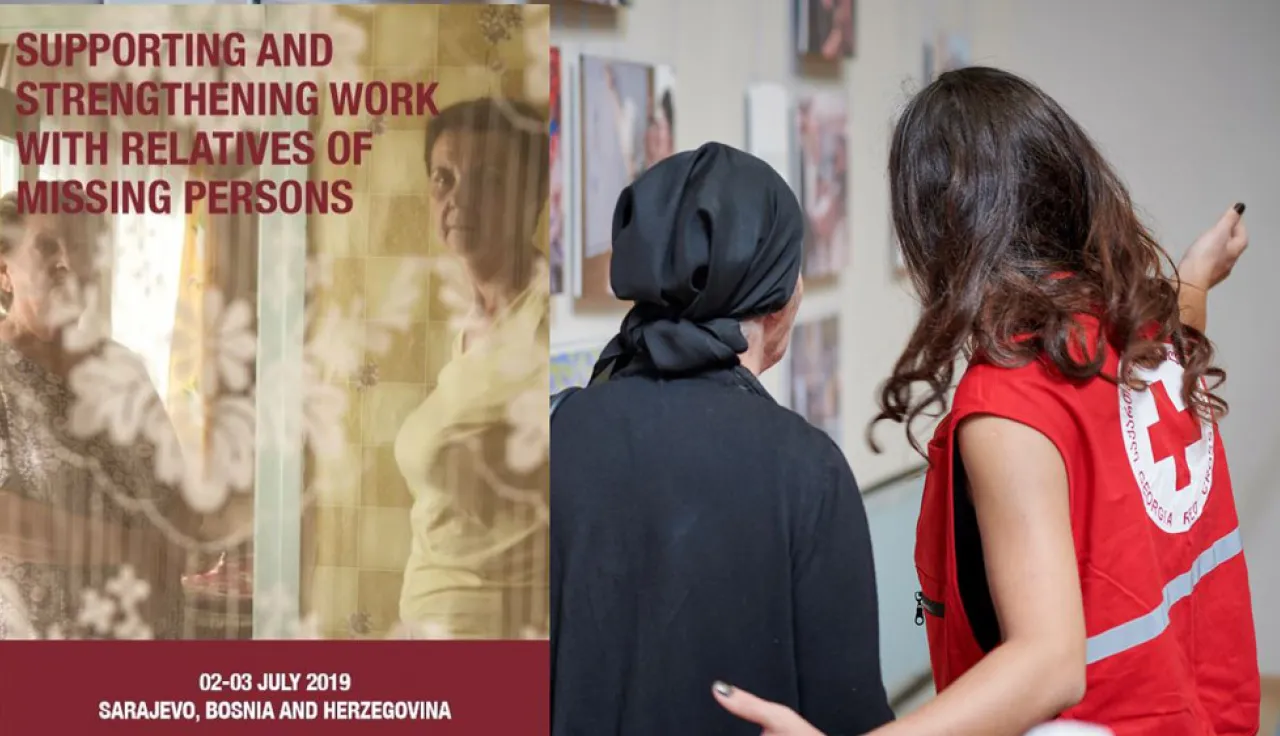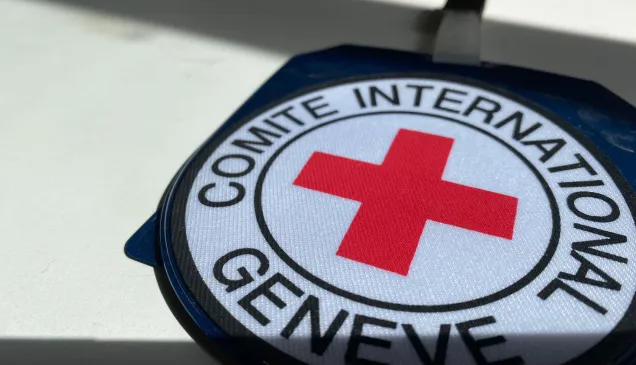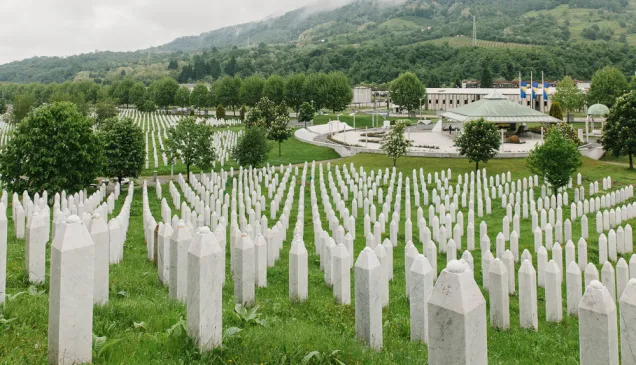Bosnia and Herzegovina: Workshop on providing better support for families of missing

Sarajevo (ICRC) – A workshop titled Supporting and Strengthening Work with Relatives of Missing Persons will take place on 2 and 3 July 2019 in Sarajevo, Bosnia and Herzegovina. Organized by the International Committee of the Red Cross (ICRC) in cooperation with the Grupó de Acción Comunitaria (GAC), the workshop will feature more than 70 representatives of family organizations and experts from 31 countries who will gather to share their expertise and experiences in looking for the missing.
The workshop will explore how to support families in their search for missing relatives, with the aim of identifying and disseminating best practices to more effectively help families worldwide facing this ordeal.
"Having a loved one go missing causes immense suffering. In addition to helping families cope with the unbearable uncertainty around their relative's fate, the ICRC focuses on providing them with legal, financial, administrative and logistical support," says Caroline Douilliez, head of the ICRC's Missing Persons Project.
Patrick Vial, the ICRC regional director for Europe and Central Asia, notes that the multifaceted needs of the relatives of missing people are often overlooked. Vial says, "The ICRC works closely with families and family organizations in many parts of the world, including the Western Balkans, to support them in the process of finding their loved ones. But it is crucial to remember that responsibility lies first and foremost with States. Under international humanitarian law, families have the right to know what has happened to their loved ones, and States have the obligation to support them and provide them with answers."
Pau Pérez, founder of the GAC, a Spanish organization that works in part to support communities affected by violence, says, "The lack of information on a relative's whereabouts is a form of psychological torture, as it creates fear, anxiety and ultimately helplessness. Families and supporting organizations must think together on how to best strengthen capacities and support the long and complex process of searching for and finding the missing."
In Bosnia and Herzegovina, almost 7,000 people are still unaccounted for from the Bosnian War of 1992–1995, including almost 1,000 people who went missing in the Srebrenica massacre, in July 1995. The workshop purposefully marks the commemoration of Srebrenica to draw attention to one of the numerous countries around the world where many remain missing.
The workshop is part of the ICRC's Missing Persons Project, a four-year initiative to improve the worldwide response to people who have gone missing by creating a global community of practice and common technical standards. It follows the workshop hosted in Antigua Guatemala, Guatemala, in May, which focused on collecting and exchanging information about missing migrants for humanitarian purposes.
Upcoming events will centre around such topics as best practices in the search for the missing and the role of forensics in preventing and solving cases of missing people.
For more information:
ICRC Sarajevo, Marko Matović : mmatovic@icrc.org; T +387 33 953 781; M +387 66 604 205
ICRC Geneva, Marc Joly: mjoly@icrc.org; T +41 22 730 34 16.



